General
Graduate Freshers Called to Create Knowledge and Impact Society
Published
2 years agoon
By
Jane Anyango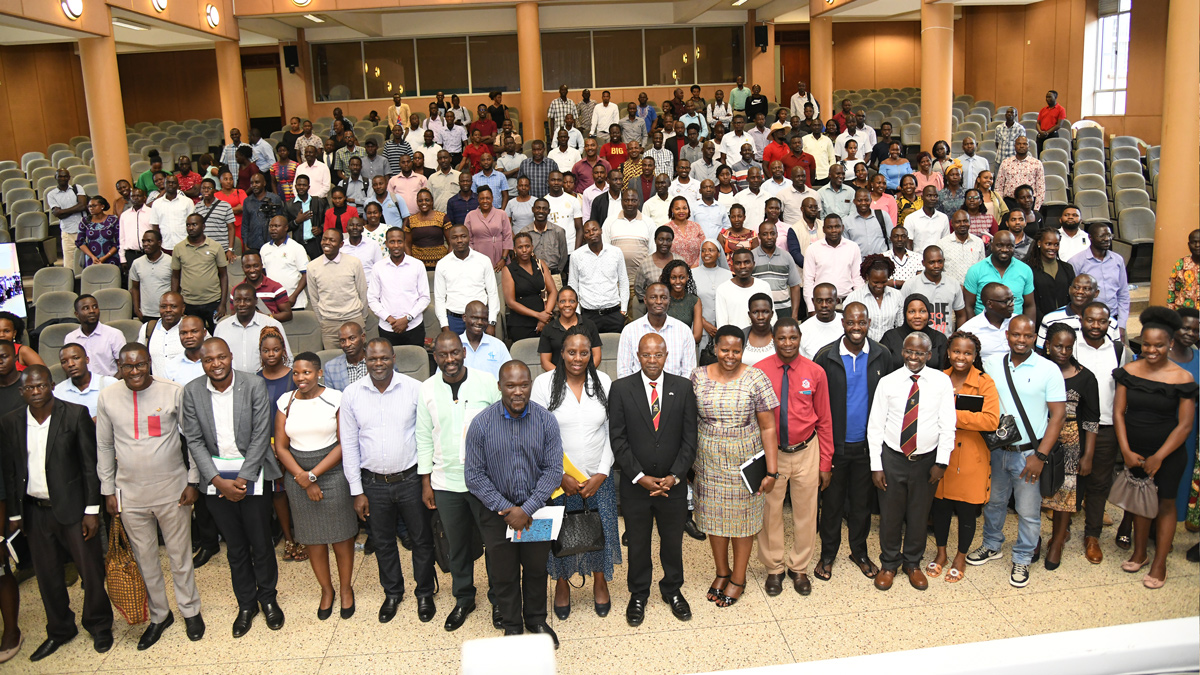
Makerere University Graduate freshers for the academic year 2023/2024 have been described as the architects of knowledge production, the pioneers of innovation, and the catalysts of progress.
The Director, Directorate of Graduate Research and Training (DGRT) Prof. Edward Bbaale gave the aforementioned description while delivering his welcome message during the Graduate Freshers induction held on 6th September 2023 in the Yusuf Lule Auditorium. The meeting attracted over 700 students physically and another over 380 participants online.
The orientation organized by the DGRT under the theme, “In Pursuit of a prosperous Future: Positioning Makerere Graduate Students to lead societal transformation” was attended and addressed by university officials from the Senate, Department of Academic Registrar, Directorate for Information and Communication Technology (ICT) Support-DICTS, Colleges, Counselling and Guidance Centre, and the Institute of Open, Distance and E-learning (IoDEL), who all reiterated the call to generate knowledge for societal transformation.
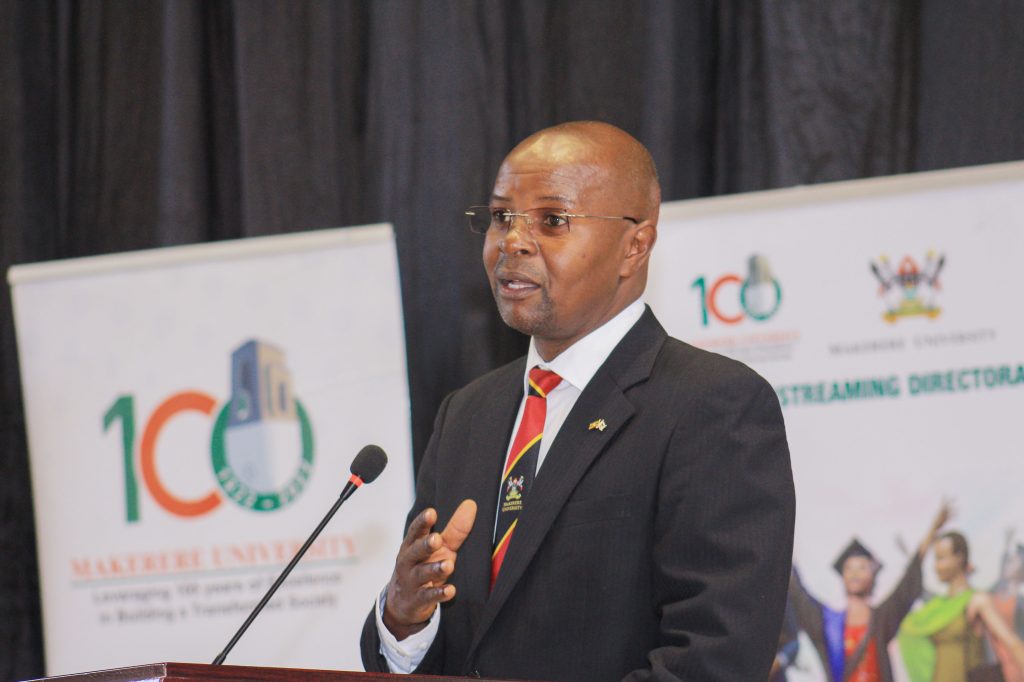
Welcoming the students to Makerere, Professor Bbaale said, the university has set its sights on a bold vision: to become a research-led and innovation-driven university, with graduate training at the very core.
“We hold in high regard the role of graduate students as the architects of knowledge production, the pioneers of innovation, and the catalysts of progress. It is your passion, your dedication, and your thirst for discovery that will shape the future of our university and contribute to the betterment of society as a whole,” the Director asserted.
With the University having celebrated a century of existence and outstanding service to humanity, Bbaale expressed optimism for boundless opportunities that lay ahead of the students.
“Makerere University stands as a light of academic excellence, not only within our region but also on the global stage. You, our newly admitted graduate students, should feel a profound sense of pride to be joining an institution of Makerere‘s caliber. Your admission reflects not only your own remarkable accomplishments but also the enduring reputation of this venerable institution”, he stated.
Prof. Bbaale expressed the University’s commitment and readiness to support and provide students with the tools and resources required to transform challenges into opportunities adding that, the University believes in nurturing critical thinkers and problem solvers.
“Within our hallowed halls, you will find an assembly of expert faculty members, distinguished in a multitude of fields, eager to guide and mentor you in your academic journey. Their guidance will be an invaluable compass, steering you towards academic excellence and groundbreaking research”, the Director added.
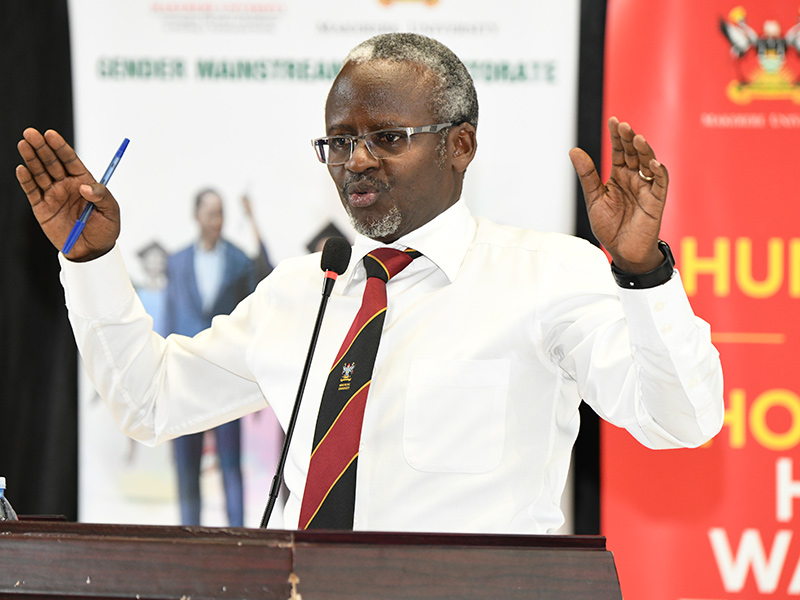
In addition to being a firm advocate of interdisciplinary education and research, and recognizing that some of the most transformative discoveries emerge at the crossroads of disciplines, Bbaale stated that Makerere University embraces collaborations, internationalization, mutually beneficial partnerships, and a global perspective.
Further, Bbaale affirmed that the university’s state-of-the-art facilities, including well-equipped laboratories will serve as the crucibles of their intellectual exploration and experimentation.
“But our commitment extends beyond the classroom. Makerere University offers a rich array of academic programs and extra-curricular offerings that promise to enrich your experience and nurture holistic development. Our campus is a tapestry woven with the dedication of our committed academic and support staff, individuals who will make your time at Makerere University unforgettable.
“To you, our new graduate students, I offer this advice: seize every opportunity, embrace every challenge, and tap into the professional assistance and support that our university provides. Your journey will undoubtedly be marked by achievements, discoveries, and contributions that will leave an indelible mark on our institution and the world at large” the Director encouraged.
Prof. Bbaale concluded by remarking that the graduate students’ journey of incredible achievements had just began, and expressed hope to witness the remarkable impact students will make at Makerere – a University, where their seeds of success had found fertile ground.
University Commits Next 10 years to be a Decade of Graduate Students in transforming society
Delivering remarks on policies and guidelines governing graduate training, the Deputy Director in charge of Administration and Graduate Training Assoc. Prof. Julius Kikooma expressed the commitment of the university towards supporting graduate students.
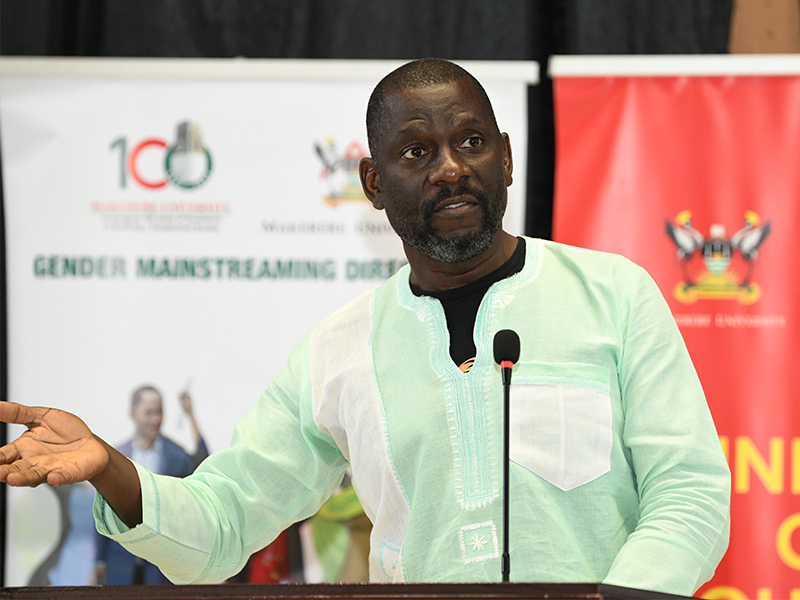
Assoc. Prof. Kikooma described DGRT as prefects in this question of graduate training, adding that the Directorate coordinates the implementation of the guidelines, the policies and the regulations needed to be followed through the programs by the students as well as the academic staff and the units.
Congratulating students upon their successful admission to Makerere, Prof. Kikooma told students that they have come at a time when the university has fully and totally committed to improving graduate training.
The 2023 Graduate students according to Kikooma come at a time when the university has just completed its centennial celebrations, and is reflecting on how its teaching, research, and knowledge transfer partnerships are impacting communities.
“One of the core issues that the university has committed to is making this a decade of graduate students, meaning that you are going to be at the center of focus of what we do in terms of teaching, research, and engaging with the wider public and immediate communities. And, we the academic staff have to work together with you, the students, in that commitment”, Kikooma stated.
He said that the theme for the induction was deliberately considered not just as an orientation to teach students to go around the campus but as an occasion meant to ensure that students and the entire university management are on the same page as a partners in the transformative journey.
Kikooma emphasised that the DGRT was inducting students into what it means to be part of transforming society, but with teachers charged with a responsibility of passing on knowledge, skills and wisdom to graduates who must undertake a bigger responsibility.

“We are saying that, we need you to appreciate that the university has committed the next 10 years, to produce a certain type of graduate student that is sensitive and is alive to what is needed to change this society.
We’ve done a lot in the last 100 years as an institution to produce people that have done what they could to take Uganda to where it is now, but, the next seed of students must be sensitive and be able to appreciate that it’s not enough for us to focus on coming here for knowledge.
It is about understanding the problems and how you can use and translate the knowledge that you are getting here into solutions for the immediate society and the immediate community that we actually live in. Uganda is still not as resourced as others in terms of wealth, and as such, we are the only hope of the society and communities where we come from,” Kikooma advised.
Three essential documents for students to guide and keep track in their academic journey
Kikoma outlined three important documents that graduate students need to pay attention to in order to move seamlessly through their academic journey.
These include the Makerere University Student Guild Statutes, which has guidelines and policies that address student support issues and how graduate students can be part of the student governance in the university. Section seven, outlines eleven organs of the student guild and other organs on postgraduate student union, as channels through which graduate students will be part of discussions that engage policy areas, at the Senate, Council and College levels.
The second document is the Makerere University Student Guild Constitution. The Student Guild Constitution contains the Guild Student Provisions and the Postgraduate Student Union requiring that graduate students become integrated and feel part and parcel of the student guild activities as part of the student voice of Makerere University.
And lastly, the Graduate Student Handbook (2013), currently under review, that will help students to keep on track of policies and regulations on: student registration, study plans, cross cutting courses, examination regulations and general regulations. Other sections of the handbook cover teaching and learning, examination malpractices and how to appeal, including ethical issues, conflict of interest when given a supervisor, and graduation guidelines.
As prefects, Kikooma pledged to work with students through the structure that exists so that they spend only that time that they are contracted to be here at Makerere University.
The Principal Registrar DRGT, Ms. Prossie Nakayiki reemphasized that registration is key and urged students to take careful note of their application credentials, and visit the admission office in case of any enquiries.
Nakayiki advised students to visit the respective school registrars with original transcripts for verification and registration, adding that the subsequent registration for continuing students will be done online.
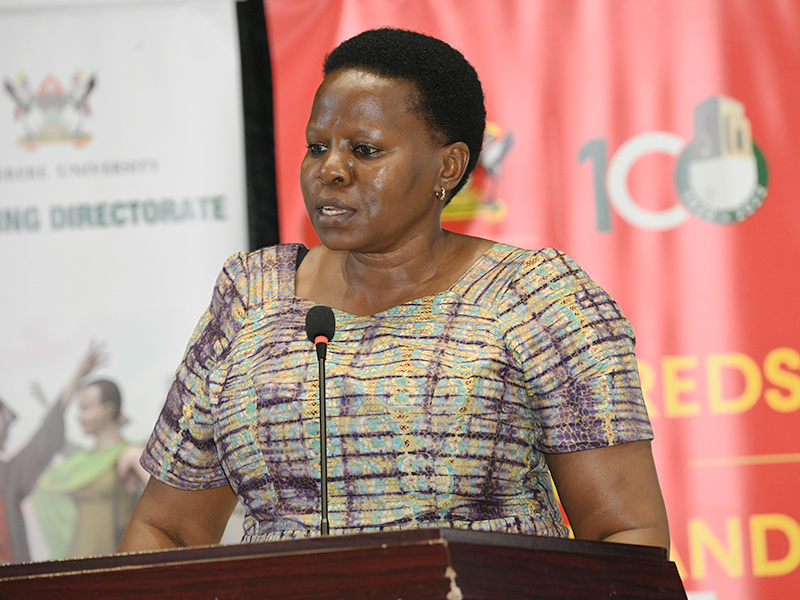
“Make sure you create a personal file where you keep all your correspondences. You are not a student unless you are registered. Registration is done within the first six weeks of the semester”, she said.
Nakayiki guided students on matters of deferment, withdrawal from the program, refund of tuition fees and general challenges faced by graduate students as well as sexual harassment as a real vice.
The 21st Century skills for Students to be professional, analytical and change agents of society
Addressing students on , “Positioning Makerere University Graduate students to lead societal transformation and development” Dr. Rhoda Wanyenze, a Professor of medicine, public health, and also Dean School of Public Health expressed the need for students to go beyond technical skills and acquire social, leadership, values and other competencies in order to be relevant and impactful to society.
Prof. Wanyenze noted that although the university provides knowledge and skills, graduate students ought to grow themselves to acquire other competencies beyond the classroom and work towards impacting others.
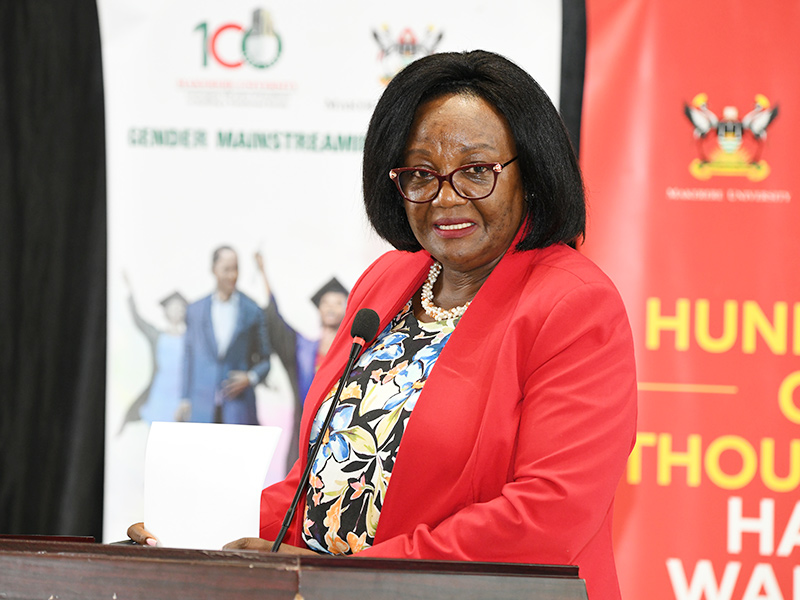
“Because you’ve got the skills, you’ve got the competencies, and you’ve got the vision and purpose to create a difference for others, you always have work, because there are always problems to solve.
“But you can’t give what you don’t have. So you’ve got to grow yourself in terms of knowledge, professionalism because we want you to change the world. There are too many problems in the world. You can make the world easier for others, and when you do, you will never lack work” she advised.
Prof. Wayenze emphasized that no matter their place of work, titles or ranks, so long as they are working with communities, students have to learn to communicate, lead, and do things differently.
“Whether you are representing your classroom, whether you’re in research, in academia, you’re leading research teams, many people get money and they can’t even implement because they don’t know how to lead and manage teams. So we need to grow our leadership capabilities.
“We need to grow our creativity. Think, think different. Do something different. Don’t just take things the way they are because that’s what they’ve always been. You are not going to change the world when you come and continue what everybody has done.
“These days the world is global. You’re going to work with people across different countries, cultures and races. You’re going to work with younger people and older people. We need to learn to work across the divide. How will you work with the world when you can’t even work across a tribe in your country? You need to learn to work with people that are different from you. Ideas come not from the people that are like you. New ideas come from the people that think different from you, that have a different experience from yours,” the Dean advised.
Prof. Wanyeze underscored the importance of acquiring Social competencies in leading and transforming the world, working with communities and understanding their experience and their knowledge to make them better.
She called on students to be creative and find ways of picking up and exposing themselves to other social competencies required such as advocacy and lobbying, which are key to explaining data or evidence for policy makers, as well as writing and analytical skills, and innovation, which are important in many areas such as managing projects.
Wanyenze implored students to do their best and ensure they finish within the program time, use knowledge and skills acquired to look for opportunities where they can lead, show people a direction, mentor and support one another.
Where there are debates, the Dean advised students to participate, as they help improve one’s skills in communicating and getting their points across. She also advised students on the need to get involved in networks, partnerships and research with their colleges.
“Life is about identifying what you want and going for it. Don’t be that person that feels like the world is against you all the time because you didn’t get what you wanted. The world doesn’t know what you want. Know what you want and go for it. Be proactive and seek opportunities.
“And people say, they hire you for qualifications, they fire you for those skills we call soft. Embrace technology. This is a world of technology. Grow your networks and learn at least one foreign language” remarked Prof. Wanyenze.
Graduate studies to take the blended learning, or open distance and e-learning as a mode of delivery
Presenting on online learning, Director of the Institute of Open, Distance and E-learning (IoDEL), Prof. Paul Muyinda Birevu decried the fact the graduate student of the 21st Century is faced with challenges of balancing work and meeting family needs while studying and, at the same time, the requirement to participate in different political, social and religious activities as they study.
Sensitising students on the new approach to teaching and learning, Prof. Muyinda said Makerere University set up IoDEL to nurture the growth of blended learning.
Muyinda implored students to acquire the necessary skills and be prepared for the university electronic learning environment and virtual classrooms that will supplement face-to-face teaching.
“That means that there will be a lot of online learning activities that you’ll be taking, and therefore you will need some skills on how to study online. Many people who study online actually fail to study because they lack the skills of studying online.
“Makerere University not only has physical classrooms as you see them here, but also the virtual classrooms, which are hosted on Makerere University Electronic Learning Environment (MUELE),” he said.
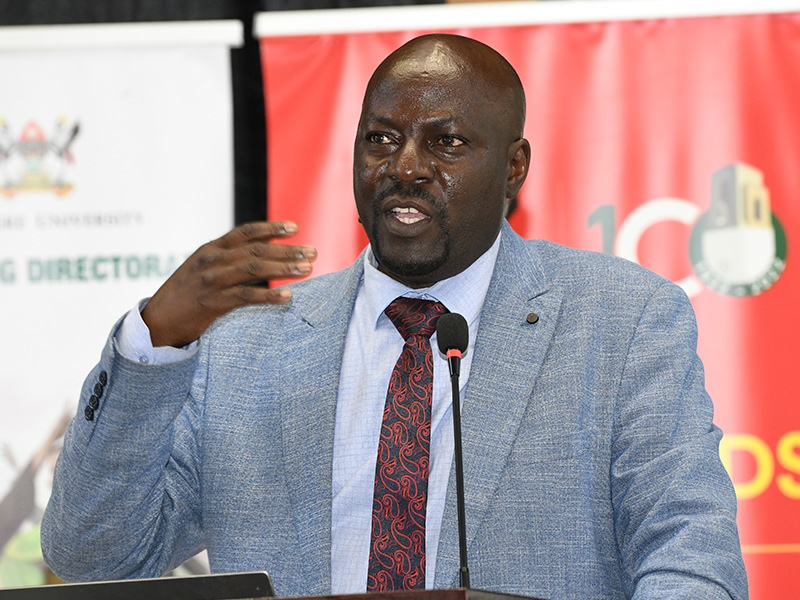
Prof. Muyinda explained that traditional face-to-face delivery mode which is teacher-centered assumes that the instructor as knowledgeable person to pump knowledge into students heads.
He advised that with the changing world and especially at graduate level, the university emphasises approaches to teaching and learning that induce generation of knowledge, even from students to professors as well.
“Makerere University has been offering distance education since 1991. We have been having distance education programs, where students stay wherever they are and learn.
“Many of the accountants that you have in Uganda, many of the education professionals, many of these people have trained us through the distance education mode. So we don’t have to disturb them in their workplaces”. He added
Prof. Muyinda shared that distance education has gone through a number of generations from the days when instructor used to send the materials to students to read from wherever they are. With the coming of technology, he affirmed that the university lecturers can send the materials to students and interact with them through technology as was the case during the CoVID-19 lockdown.
“There will be a lot of technology infusion. Your lecturers, because they have had a dose of blended learning and a dose of online learning during CoVID-19, and because there is a lot of campaign by Makerere University to integrate technology-mediated teaching and learning, you’ll find that most of your lecturers are going to be using online learning, where they will work with you on the e-learning management system (MUELE) or using the synchronous system like Zoom”, he explained.
Prof. Muyinda told students that the lecturers are developing online materials and hence the need for them to be able to quickly enroll themselves and get to the Learning Management System, saying all units have support champions to assist them gain access to online resources.
To venture into online learning, Prof. Muyinda implored students to acquire ICT skills, be self-driven, ready to share work with others, interact in small groups, and have good communication skills.
“You need to be self-directed at graduate level because no one is going to be forcing you to do anything, the reasons why some students fail to complete in time. We need self-directed learners, learners who can manage their own time. And online learning requires such learners. If you are not self-directed, online learning will be very difficult for you to complete. So you must be self-motivated” He cautioned.
Apart from minimizing costs, Prof. Muyinda highlighted a number of benefits accruing from online learning including enabling student-centered teaching and learning, co-creation of knowledge, and availability of course materials at no cost (e.g. photocopying) at any time.
Presenting on ACMIS and benefits of ICT to a graduate student, the End User Support Administrator DICTS, Mr. Yunus Musisi advised students to get Makerere University email addresses as gate passes to access systems. He cautioned students to be careful with sharing their personal information online because it can be accessed by cyber-criminals.
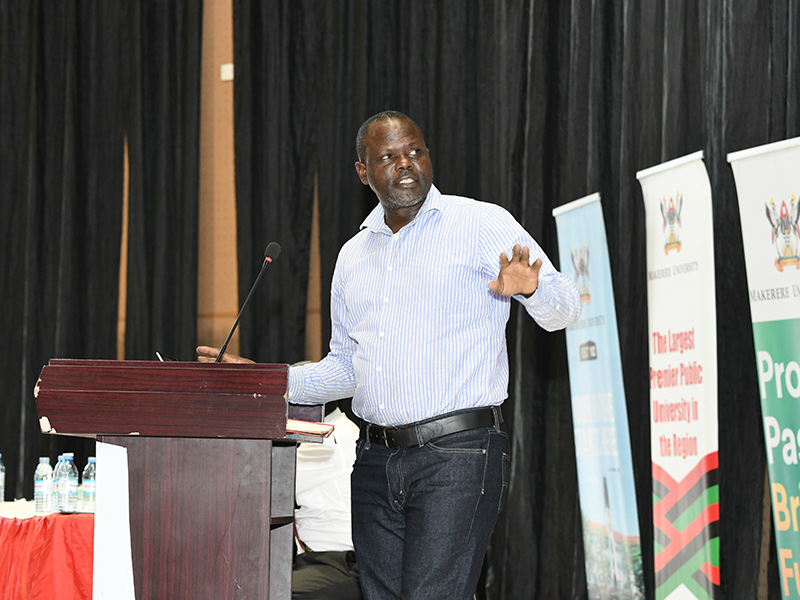
Mental health key to successful Graduate studies
Presenting on services available at the Counselling and Guidance Centre, the Director of Counseling and Guidance, Dr. Henry Nsubuga said the university established the unit to take care of psychological and emotional issues affecting staff and students.
“You can’t be physically healthy if you are not psychologically or mentally healthy. Actually, mental health takes precedence.” Dr. Nsubuga said.
Dr. Nsubuga highlighted; a wounded past, those coming from countries affected by war and have been traumatized, and a host of other factors as causes that would require students to seek counseling services.
Additionally, he advised that students who could have had a difficult childhood might need support on grounds that some of the suffering adults currently face results from unresolved childhood issues. This, he added, affects their self-confidence and esteem levels.
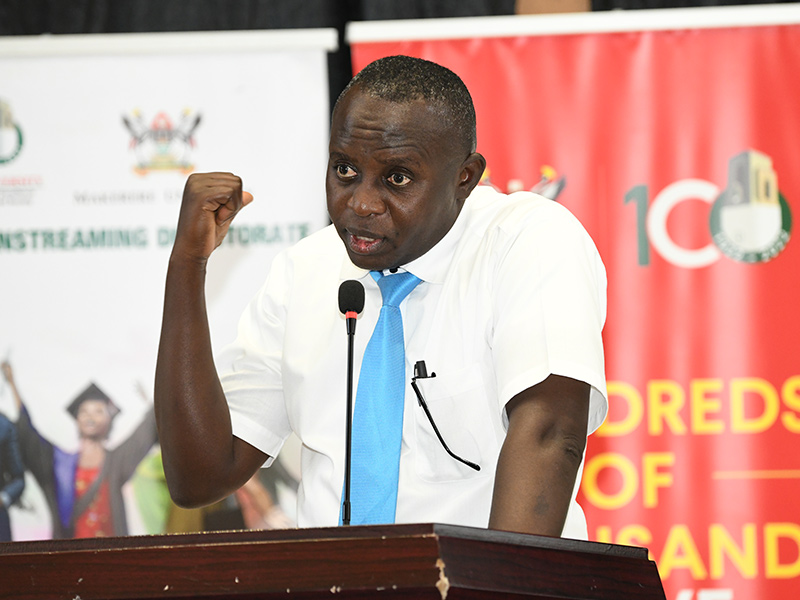
“It is very important that we receive services to deal with some of the issues that could be coming from the past because we are growth oriented. As human beings, we want to improve every other day. It doesn’t matter whether you are a professor or student, at some point you may be lagging in something”, He counselled.
Nsubuga justified the need for a supportive system on the basis that no human is immune from problems and emergencies that could arise from relationships, family, losing a job rigorous graduate training, lack of resources, or even loss of a dear one.
The Library, An essential resource to a graduate student
The University Librarian, Assoc. Prof. Ruth Nalumaga introduced students to library services, and sections notably; the Africana section, special collection and archives section the legal repository, and the research commons for graduate students.
Dr. Nalumaga introduced the ICT training lab, document delivery services and databases that can be ordered or downloaded among services offered.
She added that the library conducts e-resources training to help students understand how to get the best and relevant data. In addition, the library, she said, trains students how to reference their work properly using accepted formats including information on ethics and problems arising like respect for intellectual property rights.
“You must attribute the source of your information so as not to fall in the trap of plagiarism. Avoid unauthorized access to databases and do not violate, misuse or share passwords. Photocopying a whole document is a violation of copyright because the maximum allowed is three chapters”, the Librarian cautioned.
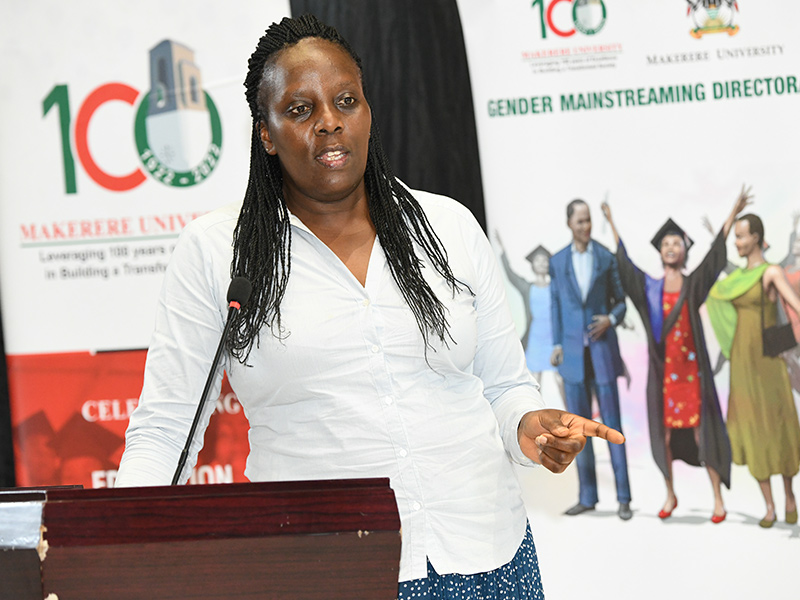
The Graduate journey is interesting with highs and lows says, Graduate student
Speaking on the journey of postgraduate studies at Makerere University, the Chairperson Graduate Students Union Douglas Bulafu congratulated students upon their successful admission to Makerere University. He described the journey as worthwhile.
“The journey as a student at Makerere University is worth it and full of highs and lows. The journey is very interesting, but also lonely sometimes, for example for the PhD student, you reach an extent and you feel you’re in your own world.
“But with the support system that has been spoken about, I believe you will make it as a postgraduate student. Masters students are always close to each other. I really know that. So yours is not as much as lonely a journey as the PhD students’.
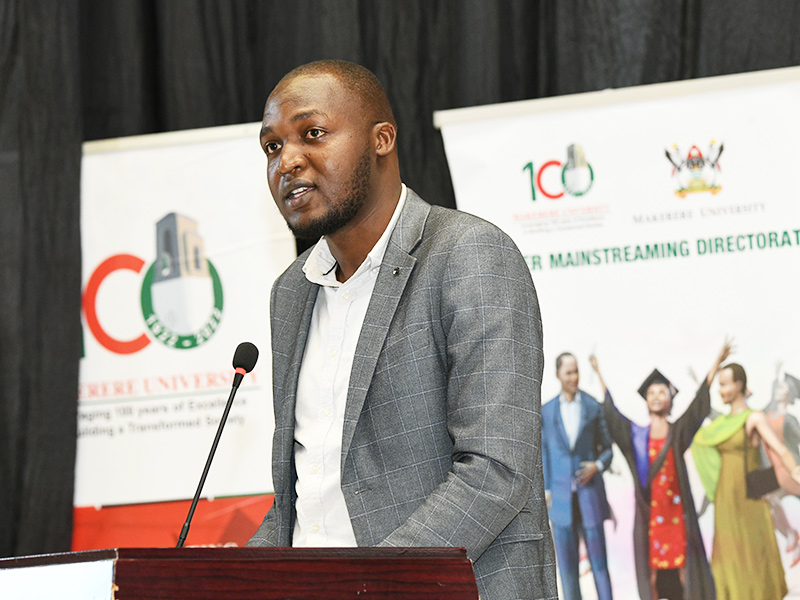
“The journey at Makerere University is all about self-drive. No one is going to push you to go to class. No one is going to tell you to do coursework. No one is going to tell you to go and sit for an examination. But it is up to you as a student. To know that it is your responsibility to attend class and do coursework” Bulafu said.
He pointed out some of the challenges faced by graduate students including financial challenges and how to strike a balance between work, studies and family.
He informed students of the university leadership structures that take on graduate students, from DRGT, the Dean of Students, Colleges, Schools and Departments, and at the classroom level with class coordinators.
The roles of the Union, Bulafu said, include linking students to the administration, representing students on a College Academic Boards and at the Guild level, urging them not to leave student leadership to only undergraduates.
The Union, he said, also collaborates with other entities in the University such as the Counseling and Guidance Center, Makerere Innovation Hub and organizes graduate student assemblies.
You may like
-
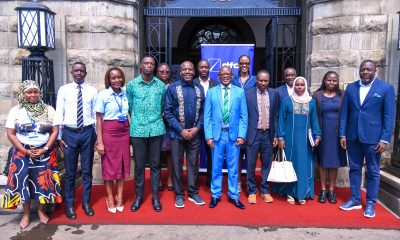

Makerere University, DFCU Bank Sign MoU to Advance Innovation, Student Leadership and Research
-
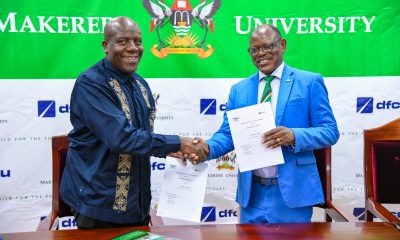

Press Release: Mak & DFCU Partner to Enhance Higher Education, Research & Student Support
-
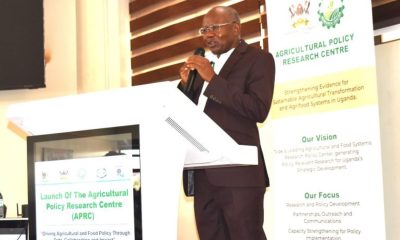

APRC Trains Graduate Students & Stakeholders in the Use of the African Agriculture Adaptation Atlas
-
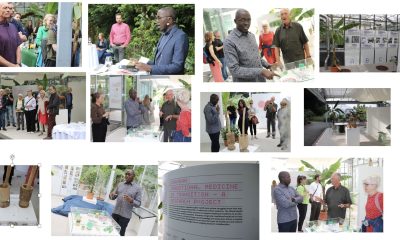

CARTA Early Career Researchers in Action
-
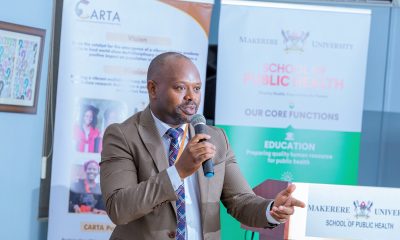

CARTA Focal Person Dr. Isunju Appointed to MakPress Editorial Board
-
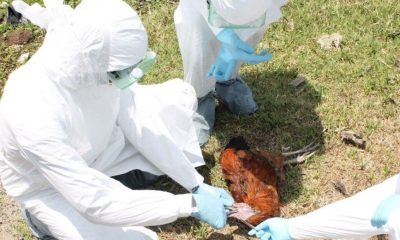

Advancing Regional Health Priorities Through the CARTA Research Hubs
General
Undergraduate Admissions List: Mop-up/Appeals 2025/2026
Published
1 day agoon
July 4, 2025By
Mak Editor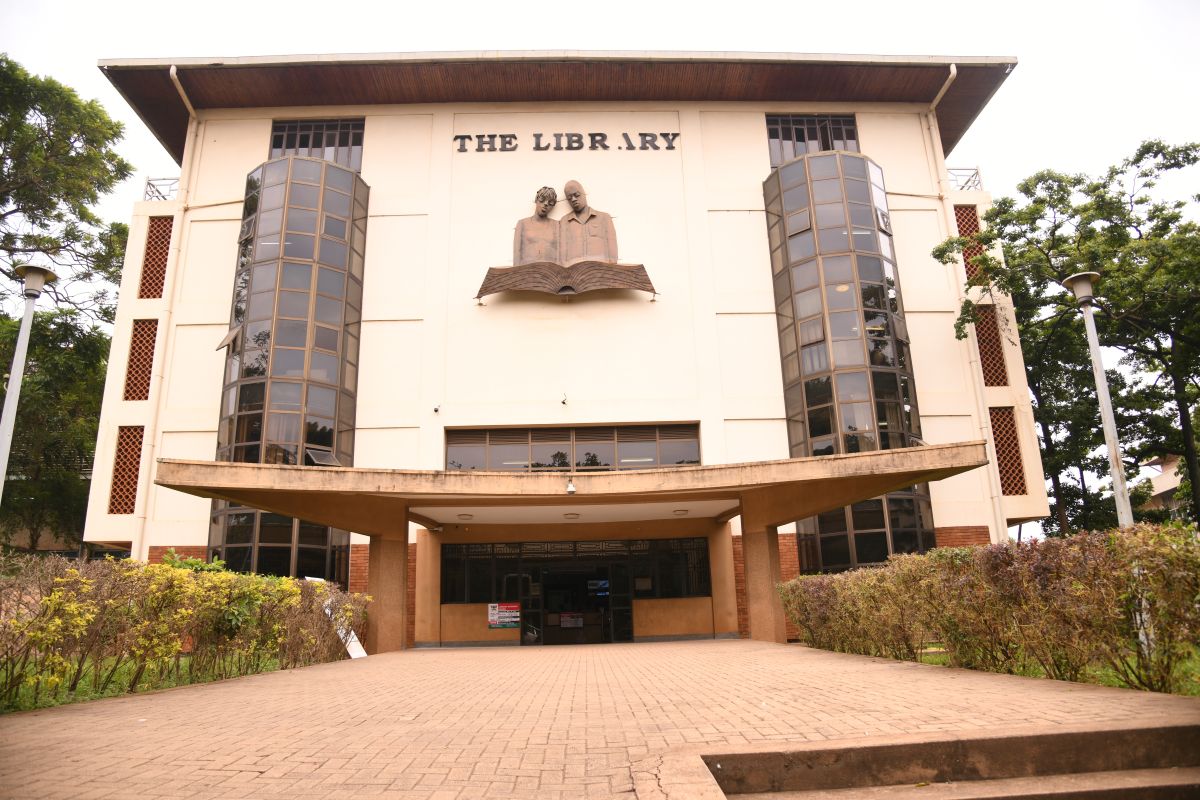
The Office of Academic Registrar, Makerere University has released lists of Successful appeals and supplementary lists. Below is a list arising from appeals of Government Sponsored candidates who have been admitted:
General
Makerere University, DFCU Bank Sign MoU to Advance Innovation, Student Leadership and Research
Published
1 day agoon
July 4, 2025By
Mak Editor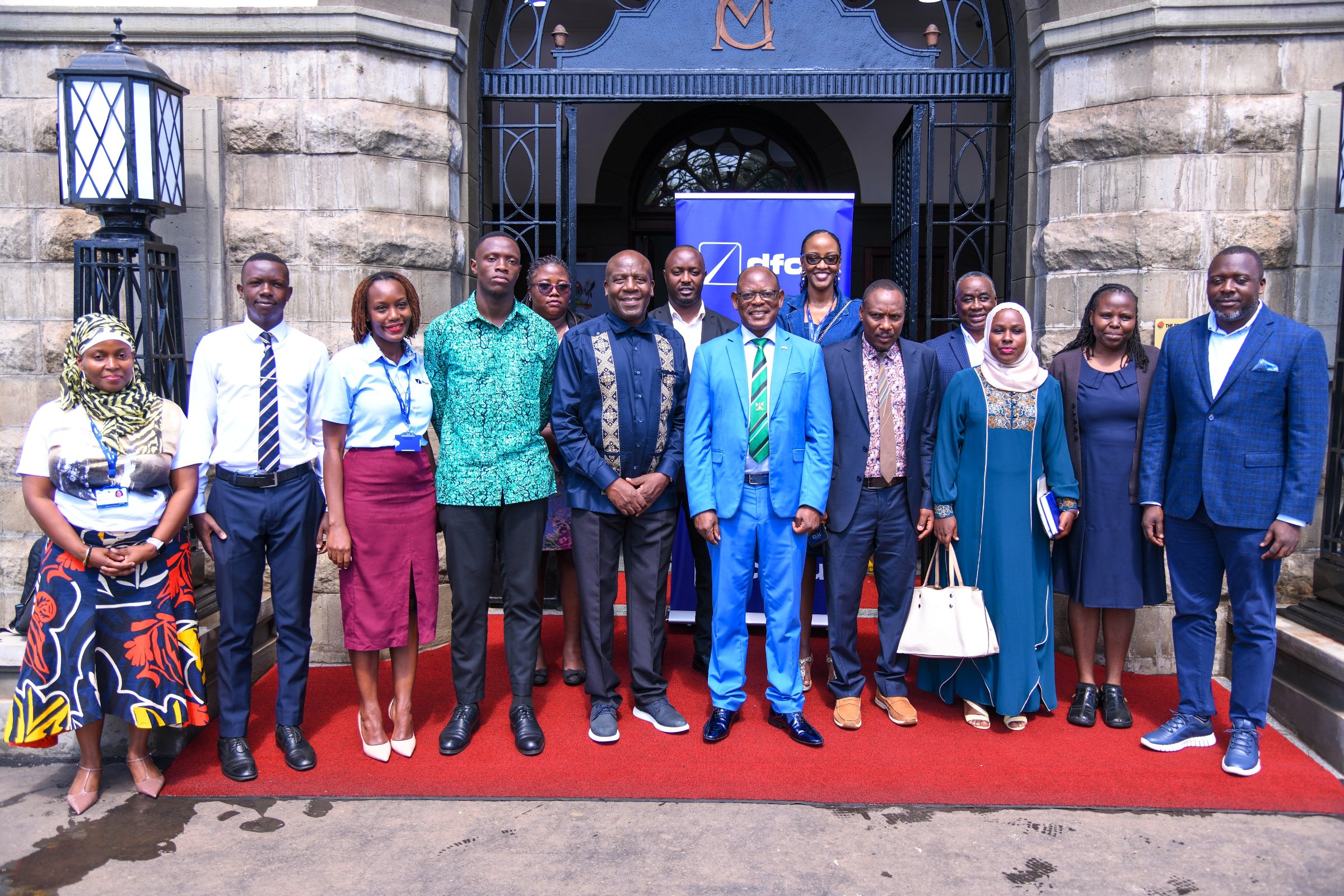
By Eve Nakyanzi and Atwenda Nancy
Makerere University and DFCU Bank have today signed a three-year Memorandum of Understanding (MoU) to bolster innovation, student leadership, research and community impact initiatives.
The collaboration which will see the equipping of the Disability Support center for students living with disabilities through the MAK run and more leadership trainings for students will begin this July.
“The MoU will strengthen research collaborations across sectors like agriculture and health and it will also support the Mutebile Centre to assist private sector growth, which is crucial in lifting Africa out of poverty,” said Prof. Barnabas Nawangwe, the Vice Chancellor.

Speaking during the event, Mr. Charles M. Mudiwa, the DFCU Bank Chief Executive Officer, welcomed the move, noting its alignment with the bank’s mission to transform lives and support national development through four pillars: funding, financial inclusion, enterprise development, and vocational education.
“This MoU crowns years of effort and shared intent between our institutions,” he stated.
Mr. Mudiwa highlighted the bank’s commitment to skilling youth through internships, curriculum development, and support for innovation hubs and centres of excellence at the university.
“We consume the graduates of Makerere. In our most recent graduate intake of 87, 60% were Makerere alumni. The bank allocates around 30 internship positions annually to equip young people with the skills necessary for future roles within the institution,” Mr. Mudiwa, noted.
Representing the student body, Guild President His Excellency, Sentamu Churchill James, commended the partnership as a timely intervention that will empower youth, support SMEs, and expand internship and leadership development opportunities.
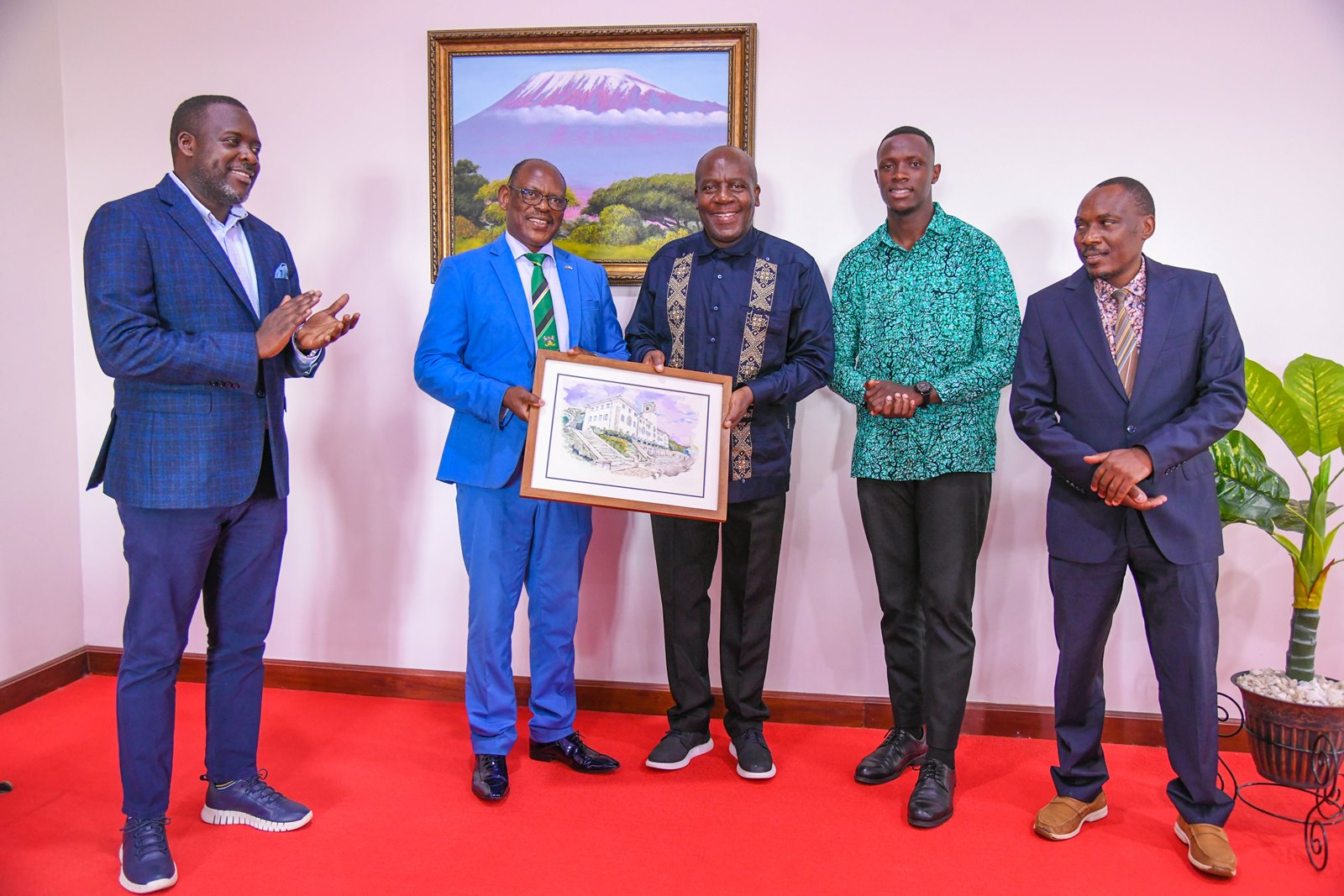
“Students are the heartbeat of the university. This collaboration will empower youth and strengthen their role in national development,” His Excellency Ssentamu, said.
About MAK RUN 2025
The Makerere Run 2025 (#MakRun2025), hosted by the Makerere University Endowment Fund (MAKEF) on 17th August 2025, returns for its fifth edition as Kampala’s premier charity marathon, uniting 8,000+ runners—students, alumni, corporate teams, and elite athletes—to tackle the city’s iconic hills under the theme “Run the Hills for the Future.” This landmark event combines competitive racing with transformative impact, channeling proceeds to strengthen Makerere University’s community programs while offering unmatched branding opportunities for partners through Kampala’s largest university-led sporting spectacle.
The Mak Run, scheduled this year for August 17th, is a flagship initiative that mobilizes students, staff, alumni, and partners to raise funds for projects such as the Disability Support Unit and the Student Centre.
The Writers are Interns in the Public Relations Office, Makerere University
General
Diploma in Performing Arts Admission List 2025/26
Published
1 day agoon
July 4, 2025By
Mak Editor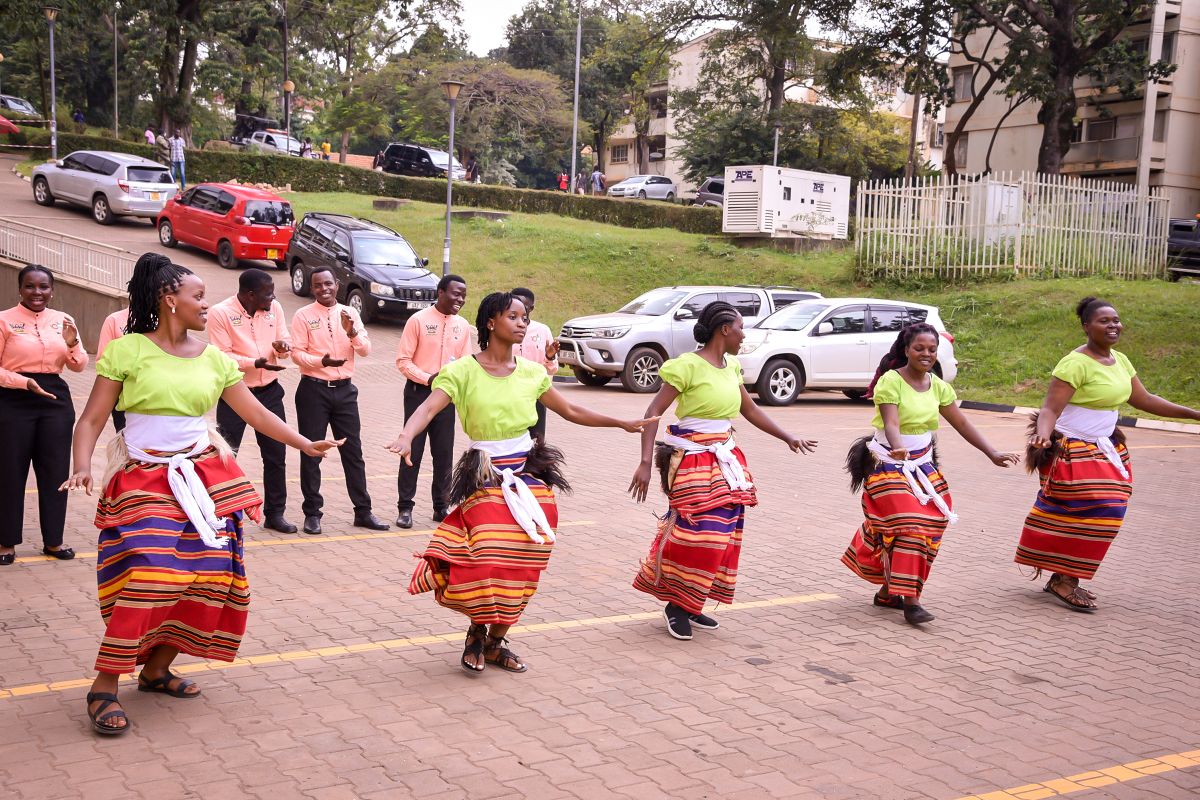
The Office of Academic Registrar, Makerere University has released the admission list of candidates who passed the special entry examinations for the Diploma in Performing Arts held on Saturday 17th May, 2025
The following have been admitted by the University’s Admissions Committee on Private Sponsorship for the 2025/26 Academic Year
Trending
-

 Education1 day ago
Education1 day agoAdmission List to Bachelor of Education External (BED) 2025/26 -Private Sponsorship
-

 General1 week ago
General1 week agoMature Age Scheme Exam Results for 2025/2026
-

 General2 weeks ago
General2 weeks agoFreshers’ Joining Instructions 2025/2026
-

 General4 days ago
General4 days agoUndergraduate Admission List Self Sponsorship Scheme 2025/2026
-

 General2 weeks ago
General2 weeks agoMastercard Foundation Board pays its inaugural visit to Makerere University
